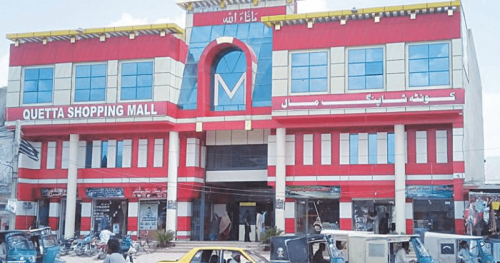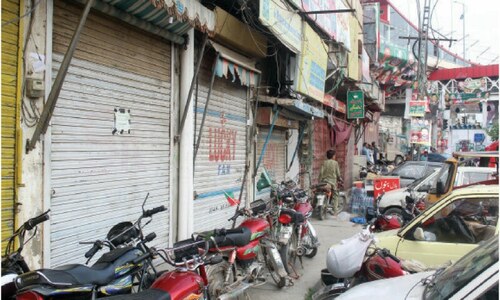KARACHI: An increase in fixed retail tax from 12 per cent to 15pc and restricting business hours for retail outlets to 8pm will lead to a big drop in sales, store closures and job losses, warned an umbrella body on Thursday.
Since the retail sector accounts for 18 per cent of the country’s GDP — $62 billion out of $360bn — a significant reduction in demand for local textile products will have severe consequences.
Closure of stores at 8pm could cause a 25-30 per cent drop in revenue and result in a sales loss of $15bn.
The retail sector directly and indirectly provides jobs to over 10 million people, accounting for 14pc of the total workforce.
Restricting working hours would eventually leave three to four million people unemployed, the Pakistan Retail Business Council (PRBC) fears. The council represents well-known retail establishments across the country.
It expressed serious concern over the ongoing budget announcements and discussions between the federal government and various chambers and trade bodies regarding a proposal to raise taxes and restrict retail timings.
The PRBC feared that increase in fixed retail tax and forcing shops to close by 8pm would deal a telling blow to the formal retail sector. A reduction in customers’ purchasing power would eventually drive many documented retailers out of business, the council added.
The PRBC said the documented and integrated retail sector pays 40 per cent more in taxes, duties and levies than the undocumented sector.
This difference scares people away from the tax net and encourages them to stay out of the net. Ultimately it is counterproductive for the state, the Council said.
The PRBC said the government should consult tax-paying stakeholders to thrash out a mutually agreeable way forward.
The body urged the government not to raise fixed retail tax as undocumented retailers pay zero per cent in taxes while registered retailers are paying 12pc in taxes.
It suggested allowing retailers to adopt a wheeling strategy based on off-site solar power generation to reduce costs and benefit both retailers and the government by switching to renewables and thereby lowering the oil import bill.
Until a decision is reached on the execution of this strategy, PRBC recommended allowing integrated tax paying retailers to continue the existing business hours without restrictions.
Furthermore, the PRBC said, the government should encourage people to pay digitally through credit/debit cards in restaurants by giving a preferential tax rate of five per cent instead of the standard tax rate.
“A similar mechanism should be introduced for documenting the retail sector.”
Published in Dawn, June 16th, 2023















































Dear visitor, the comments section is undergoing an overhaul and will return soon.